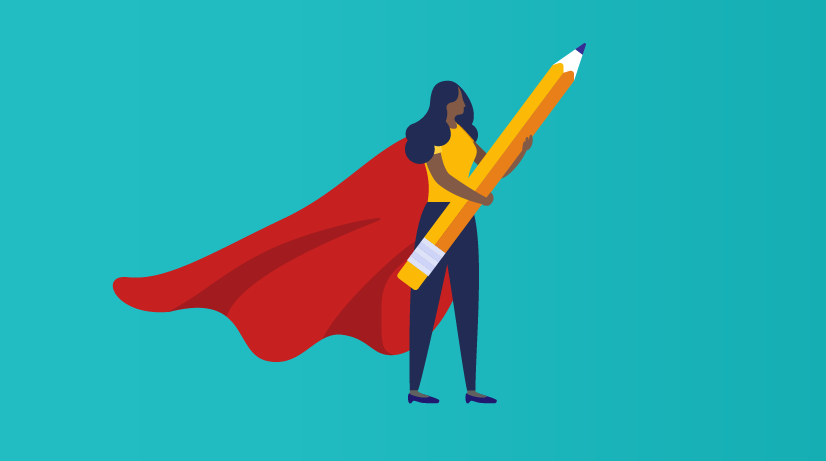Even heroes experience fear but they’re also aware of their courage and that’s how they overcome obstacles – we can do the same
Everyone, it’s said, is the hero of their own story. As we know, real heroes aren’t fearless – they feel fear but they manage these feelings so that they achieve what they need to achieve. In our working lives and beyond we all have to do things that demand courage– delivering a presentation, going for a job interview, walking into a party when we probably won’t know anyone or having to have a difficult conversation with a friend or family member. We experience fear but very often we go ahead and do what we need to do.
Now, new research suggests that the braver we believe we are, the better able we are to perform in a situation that requires courage. Psychologists from two Australian institutions, Monash University, Melbourne and the Cairnmillar Institute in Victoria, started by asking a group of individuals to respond to statements such as “If something scares me, I try to get away from it”, or “I tend to face my fears”, in order to assess their overall level of courage. They were then specifically asked about their confidence – or lack of confidence – in public speaking. Other questions were put to them about their fear of spiders, just to ensure that they didn’t guess that, as part of the experiment, they were going to be asked to speak in public.
Fear of public speaking
A total of 28 respondents were revealed to have a particular fear of speaking in public. They were then invited to take part in the research. They were asked more questions relating to their fears about public speaking before being asked to deliver a speech or presentation on any topic that they wished. After five minutes of preparation time, they were invited to begin speaking for as long as they wanted or until five minutes had gone by.
To add to the pressure not only were the participants also told that they were to be filmed but they were also informed that a panel of judges would be assessing their performance. No pressure, then! The researchers discovered that those participants who felt that they were more courageous were willing to speak for longer. Not only that, but the levels of courage assessed among the individuals at the start of the research, even before they knew that they were going to be asked to do some public speaking, also correlated with the amount of time that they felt confident to speak for.
So, is our ability to feel and leverage our courage related to the task in hand. In other words do we have to tell ourselves that we’re brave when it comes to public speaking, as in this experiment, or if we’re about to go skydiving or tell our boss that we’ve made an awful mistake? The picture is mixed – some research suggests that feeling brave is related to a particular task or situation while, according to other experiments, it’s context-agnostic.
The braver we feel we are, the more confidence we have
In this case, the researchers suggest that it might be a combination of the two – in other words, we should believe that we’re generally brave but also that we’re courageous when it comes to taking on this particular daunting task.
Over 30 years ago an American psychologist called Susan Jeffers wrote a book called Feel the Fear and Do it Anywaywhich became an international bestseller. Her advice about acknowledging our fears and anxieties and then building our confidence rather than trying to dismiss these emotions, would seem to match the findings of this new research.
Almost everyone has shown courage at some point in their lives when necessary and risen to a challenge that they’ve been unable to avoid. Whatever the daunting task we face, be it at work or outside, it seems that telling ourselves that we have courage – that we are the heroes of our own story in this particular situation – can help us to develop the confidence and determination to achieve something that is outside our own comfort zone and support us as we look to move forward in our personal growth.



